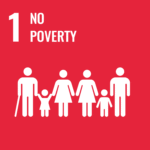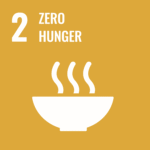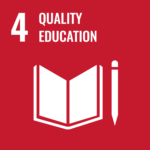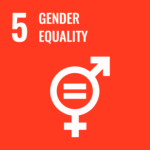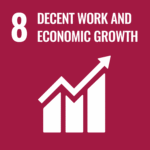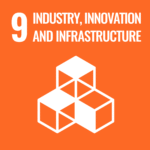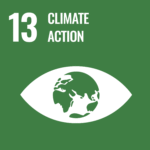The Skills for the Future Program is a flagship youth empowerment initiative by Brighter Future Africa (BFA) designed to equip young Ghanaians — particularly women — with practical vocational, agribusiness, and digital skills that enable them to secure decent work, create sustainable livelihoods, and lead in innovation.
Unemployment and underemployment remain major challenges for Ghana’s youth, who make up over a third of the population. Many young people complete school without employable skills, while others in under-resourced communities lack access to opportunities for personal and professional growth. To address this, BFA’s Skills for the Future Program bridges the gap between education and employability, turning potential into productivity and aspirations into sustainable enterprises.
The program targets young people from all regions of Ghana, ensuring 70% of participants are female, in recognition of the need to close gender gaps in access to skills, finance, and entrepreneurship opportunities.
Goal
To empower Ghanaian youth — especially young women — with relevant technical, vocational, agribusiness, and digital skills to enhance employability, entrepreneurship, and sustainable livelihoods nationwide.
Objectives
Provide hands-on training in vocational and digital skills relevant to local and national economic needs.
Promote gender equality by ensuring that 70% of beneficiaries are female, increasing women’s participation in business and industry.
Support the establishment of youth-led enterprises that contribute to local economic growth.
Foster innovation, self-reliance, and entrepreneurship among Ghana’s youth.
Integrate climate-smart and sustainable business practices into all training modules.
Strengthen linkages between trained youth, financial institutions, and markets.
Program Components

Vocational Skills Development
- Training in practical trades such as fashion design, catering, hairdressing, carpentry, leatherwork, beauty therapy, and soap/detergent production.
- Business management, bookkeeping, and customer service modules embedded into all courses.
- Provision of starter packs and equipment to help graduates establish small enterprises after training.

Agribusiness & Green Entrepreneurship
- Training youth in agribusiness and agro-processing, including crop production, aquaculture, livestock rearing, and sustainable farming.
- Introduction to climate-smart agriculture (CSA) practices to ensure productivity while protecting the environment.
- Creation of youth-led farming cooperatives for shared resources, inputs, and market access.

Digital Skills Training
- Foundational training in computer literacy, data entry, and online communication tools.
- Advanced modules in digital marketing, website design, e-commerce, content creation, and coding to equip youth for the digital economy.
- Promotion of remote work and digital entrepreneurship, especially for rural youth and women.

Entrepreneurship & Enterprise Development
- Business incubation sessions where participants receive mentorship on developing and managing their ventures.
- Assistance with business registration, product certification (FDA and Ghana Standards Authority), and branding.
- Partnerships with microfinance institutions and corporate sponsors to provide seed capital and business loans.

Mentorship, Networking & Post-Training Support
- Pairing participants with mentors from relevant industries for guidance and ongoing business coaching.
- Establishment of a BFA Skills Alumni Network to connect graduates, promote peer learning, and facilitate collaboration.
- Periodic follow-ups and business monitoring to ensure sustainability of outcomes.
Expected Outcomes
- Ghanaian youth equipped with employable skills and business acumen.
- Increased participation of women in entrepreneurship, innovation, and economic development.
- Establishment of new youth-led enterprises and cooperatives nationwide.
- Reduced unemployment and poverty levels among young people.
- Enhanced digital literacy and participation in the digital economy.
- Promotion of sustainable, climate-smart economic practices among youth.
Sustainability
- Community Ownership: Engaging local authorities, traditional leaders, and youth groups in identifying training needs and supporting participants.
- Institutional Partnerships: Working with the Ghana Enterprise Agency (GEA), National Youth Authority (NYA), Council for Technical and Vocational Education and Training (CTVET), Ghana Standards Authority (GSA), Food and Drugs Authority (FDA), and private sector partners for certification, employment pathways, and scaling.
- Financial Sustainability: Leveraging CSR partnerships, public–private funding, and donor grants to sustain and expand the program.
- Alumni Empowerment: Encouraging program graduates to mentor new cohorts and reinvest in their communities.
BFA’s Skills for the Future program equips young people—especially women, who form 70% of beneficiaries—with practical vocational, agribusiness, and digital skills for self-reliance. The program advances no poverty (SDG 1) and zero hunger (SDG 2) by promoting income generation and sustainable food systems, while ensuring quality education (SDG 4) and gender equality (SDG 5). By fostering decent work and economic growth (SDG 8), innovation (SDG 9), and climate action (SDG 13), BFA empowers youth to lead in building resilient and sustainable livelihoods.
